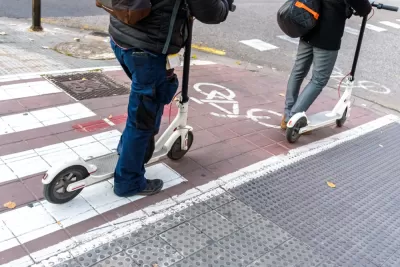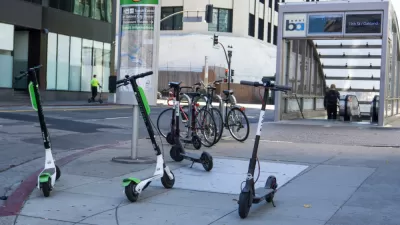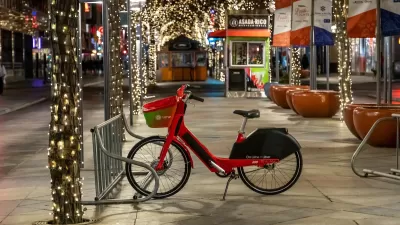Operators are pushing back against new proposed rules that some say could 'kneecap' the District's micromobility industry.

As the District of Columbia's Department of Transportation plans to cap the number of scooter and bike share operators in the District and implement a series of new regulations, Kea Wilson reports that some advocates wonder "why micromobility providers are again being held to higher standards than are drivers, automakers, and car-related businesses." In an open letter to DDOT, the District's current micromobility operators argue that the new rules could push them out of the market just as demand for their services surges.
Under the new process, companies would be assessed on a 198-point rubric that gauges the companies’ commitment to safety, equitable access, and fair labor practices, among a list of other sky-high standards that some argue would more logically apply to car-based enterprises.
App-taxi operators such as Uber do not have to pass such extensive tests in order to operate on Washington roads and can deploy as many drivers as they wish, despite such companies’ record of contributing to congestion, harmful emissions, and more. Private vehicle owners can also register as many vehicles as they like throughout the U.S. provided they meet safety and emissions requirements.
The operators "already comply with a raft of city policies, including fleets caps of 820 to 2,500 vehicles," and want DDOT "to extend the current micromobility permits for an additional year."
FULL STORY: How D.C. Might Kneecap Its Micromobility Revolution

Alabama: Trump Terminates Settlements for Black Communities Harmed By Raw Sewage
Trump deemed the landmark civil rights agreement “illegal DEI and environmental justice policy.”

Planetizen Federal Action Tracker
A weekly monitor of how Trump’s orders and actions are impacting planners and planning in America.

The 120 Year Old Tiny Home Villages That Sheltered San Francisco’s Earthquake Refugees
More than a century ago, San Francisco mobilized to house thousands of residents displaced by the 1906 earthquake. Could their strategy offer a model for the present?

In Both Crashes and Crime, Public Transportation is Far Safer than Driving
Contrary to popular assumptions, public transportation has far lower crash and crime rates than automobile travel. For safer communities, improve and encourage transit travel.

Report: Zoning Reforms Should Complement Nashville’s Ambitious Transit Plan
Without reform, restrictive zoning codes will limit the impact of the city’s planned transit expansion and could exclude some of the residents who depend on transit the most.

Judge Orders Release of Frozen IRA, IIJA Funding
The decision is a victory for environmental groups who charged that freezing funds for critical infrastructure and disaster response programs caused “real and irreparable harm” to communities.
Urban Design for Planners 1: Software Tools
This six-course series explores essential urban design concepts using open source software and equips planners with the tools they need to participate fully in the urban design process.
Planning for Universal Design
Learn the tools for implementing Universal Design in planning regulations.
Clanton & Associates, Inc.
Jessamine County Fiscal Court
Institute for Housing and Urban Development Studies (IHS)
City of Grandview
Harvard GSD Executive Education
Toledo-Lucas County Plan Commissions
Salt Lake City
NYU Wagner Graduate School of Public Service





























